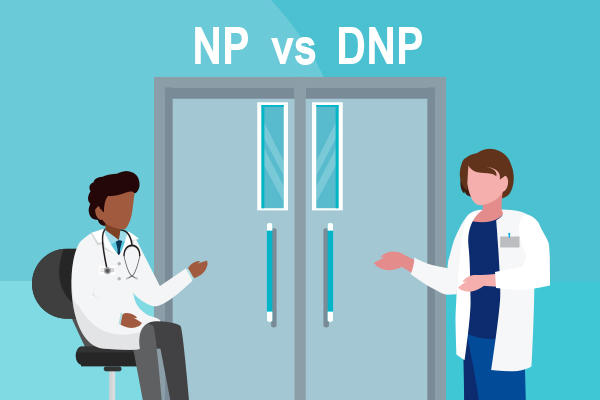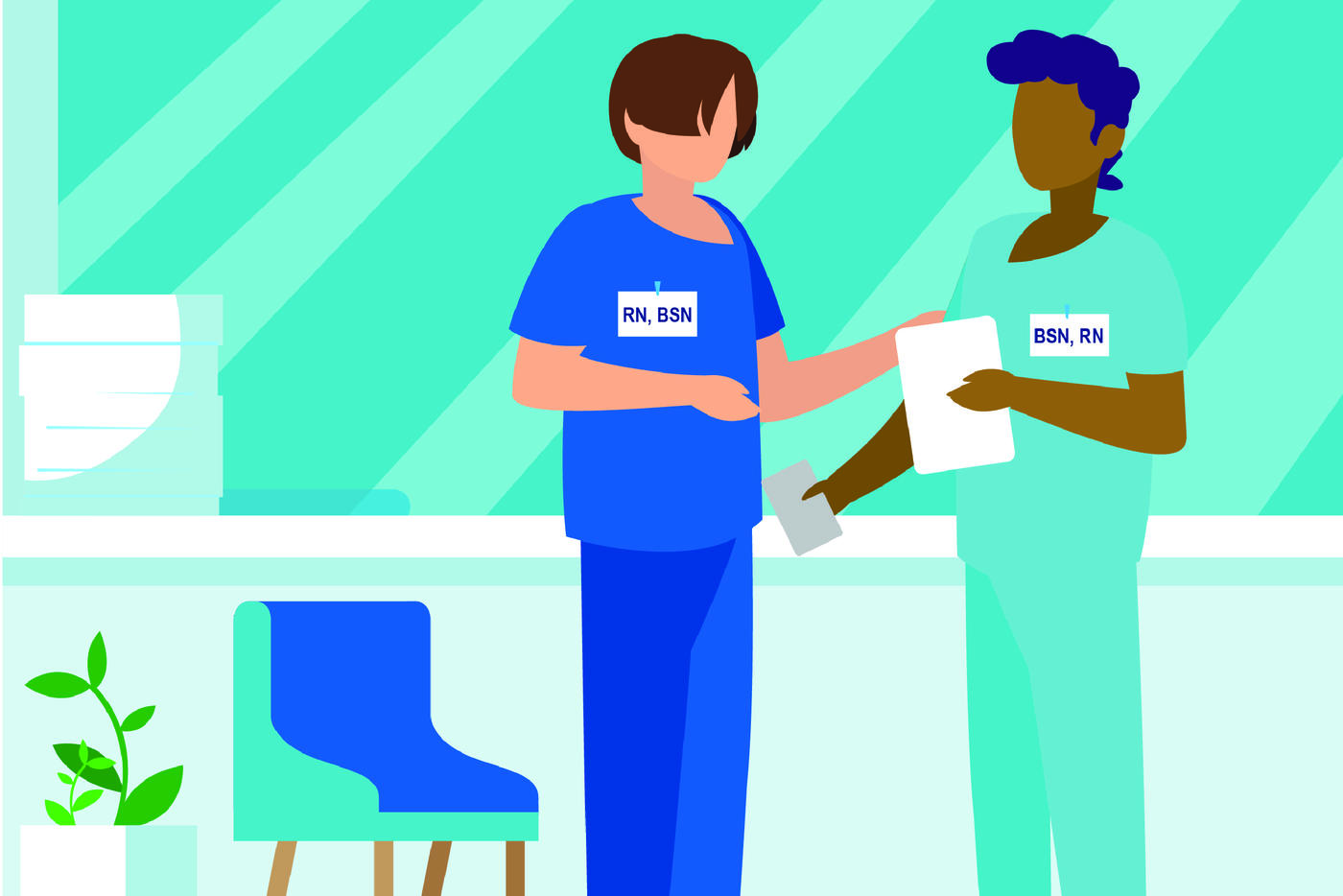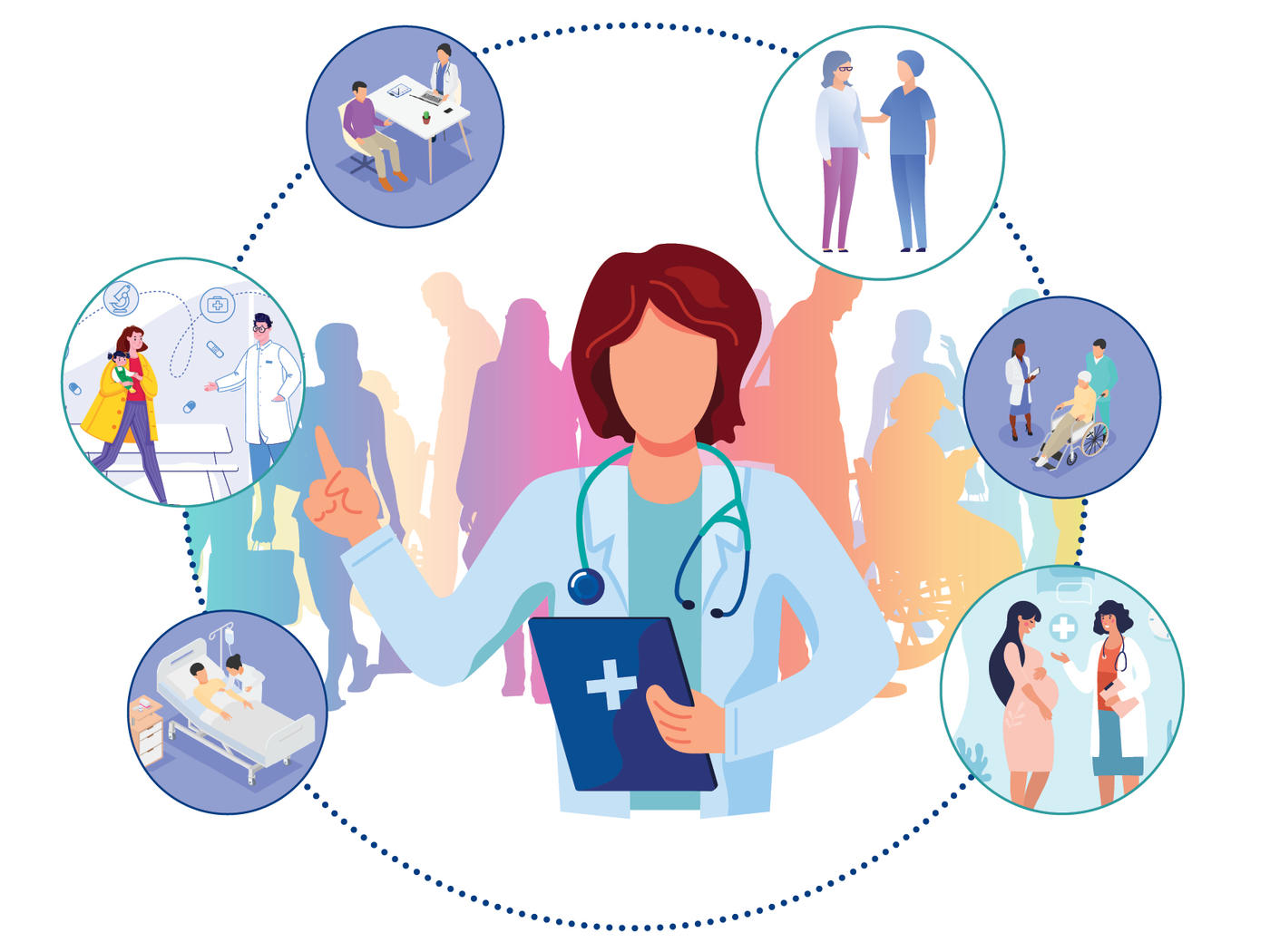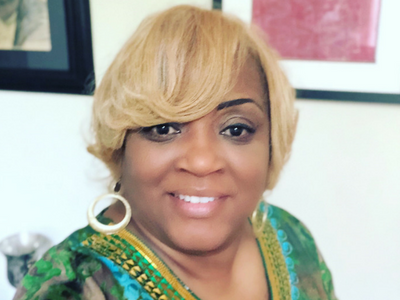Featured
Tags
Share
- Home / Blog / Nursing Today / Two Newbie Nurses Explain the Worldwide Pandemic from Their Viewpoint on the Ground Level
Two Newbie Nurses Explain the Worldwide Pandemic from Their Viewpoint on the Ground Level
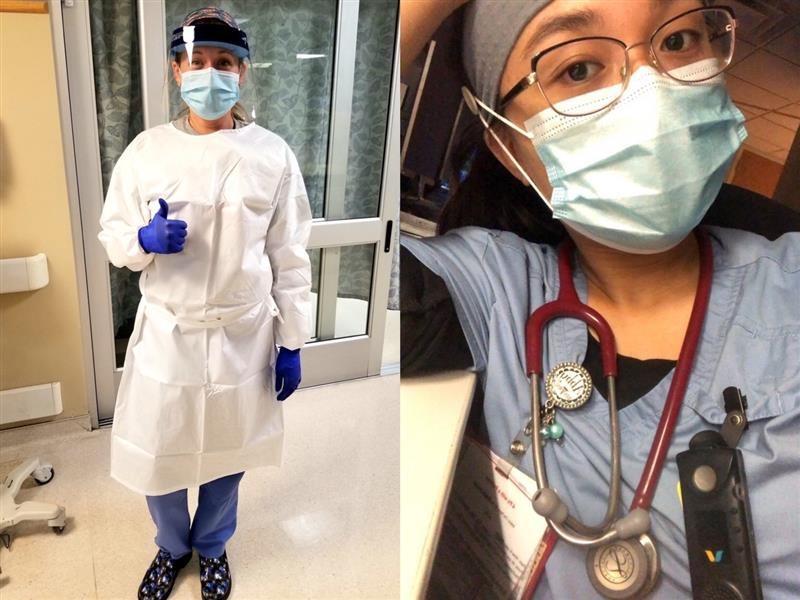
Two Chicagoland nurses joined the healthcare field to provide compassionate caring but neither could have predicted how the pandemic would catapult them into a new role and provide a fresh perspective on patient care. Chamberlain University Bachelor of Science in Nursing degree program alumnae Beth Turner, BSN, RN, and Abbygail Fernandez, BSN, say teamwork has taken on a new meaning as has giving patients a sense of hope.
Beth Turner
“This virus is going to change nursing for the rest of my career,” said Beth who graduated last fall and is considering a Master of Science in Nursing (MSN) degree. “I knew it was going to be tough but when you throw a pandemic on top of it, then all the challenges of changing protocols and hospital policies—it’s a gamer changer. I am one of the first responders for patients who are frightened because they think everyone is dying. That’s a misconception. I tell them, ‘Don’t believe everything you read; let’s remove the panic and anxiety. Take it one step at a time.’ They need to change their mindset to—how am I going to beat this and get better.”
Beth said she maximized teachings at Chamberlain to form a solid nursing foundation. “They do a great job of getting your feet wet about all the aspects of nursing so I can take what I learned and roll with it.” She praises the clinical rotations and is appreciative for her mentoring and volunteer experiences with the University’s Committee of Achievement, Learning and Mentoring (CALM) program and the Student Nurses’ Association. “Success is what you put into it. Some day I want to teach in a clinical or classroom setting.”
Originally applying for a medical-surgical position, Beth landed a spot in the emergency department at AMITA Health Adventist Medical Center in Hinsdale, thanks to a Chamberlain job fair. “I wanted to help people put the puzzle together of what was wrong and be the lasting impression with a patient. I love being in the ER—it’s hands-on every day and there’s always a new, different challenge.” Beth praises her coworkers saying, “teamwork is important in every job but here, I couldn’t do my job without the team having my back.”
When she’s off the clock, Beth enjoys exercising, cooking and visiting with friends, which has now turned into calls and video chats. “I try to stay active and keep my mind busy. With this tragedy, I’m taking time to appreciate the little things in life—being aware of where I am and what I have.”
Abbygail Fernandez
Matching that sentiment is 2018 graduate Abby, who works at Loyola University Medical Center in Maywood, and spends her free time catching up on sleep, watching movies and spending time with family. “It helps keep us all sane.”
Raised in a household full of healthcare workers, Abby followed her love of science into the nursing world and said, “I love helping people when they are at their most vulnerable.” Spending one year as a transplant nurse gave Abby an edge in caring for those now infected with COVID-19. “Patients get excited and scared and nervous because they don’t know what to expect with a transplant; it’s the same with those who have COVID. My transplant patients always said they were getting a second chance or redemption. It was so rewarding to see patients when they recovered and their condition was improving.” Now she’s finding the same gratitude in watching infected patients revert to normal respiratory function.
Abby set out to work in a psychiatric hospital or on a medical-surgical floor but has found the transplant floor, and now COVID rotation, to also be gratifying despite patients’ changing conditions and the emotional toll to stay strong.
“There are so many questions and I don’t have all the answers.” Relying on coworkers for a listening ear and support during tough shifts, Abby learned early on that it’s important to not keep everything inside.
Leaning on Colleagues
“Suppressing it is exhausting. COVID is a different level of emotional strain because you don’t know how it’s going to go. Sometimes a patient will look good and the vitals will be good. Then suddenly they start declining in less than an hour. I go into each room trying to be strong and stay as positive as possible. It’s even harder when you see a patient who already has a negative outlook.”
Abby recalled a recent patient who had withdrawn and wouldn’t answer when his wife called. “He finally picked up the phone and said he wasn’t going to get better, that he wanted to be recycled. His wife and his son talked with him for an hour and a half. When he hung up, I kept encouraging him even though he was hopeless, repeating that he wasn’t going to get better. I couldn’t do anything to make him happy except remind him that his family was supporting him and to be there for him by listening.”
Soon after that experience, Abby discovered her aunt had become infected and was admitted into her hospital. While waiting two weeks to visit because of strict hospital protocols, Abby found out she suffered from shortness of breath and disorientation. “When I went in, she didn’t recognize me because we all look like aliens. Then she told me her story and that’s when this COVID got personal. She said she was ready to die. I couldn’t breathe. Then she made me cry. She said she felt so alone in the hospital without any family and she kept praying every day that she would see someone she knew. It’s you, she said. You answered my prayers.”
Appreciative and Thankful
We appreciate your commitment to the continued well-being of our Chamberlain community and support during this unprecedented time. Please visit the Chamberlain University website for the latest updates regarding COVID-19.
We thank and honor all healthcare workers through our Care for Caregivers website as well as the Chamberlain Wall of Gratitude and thank-you message.
By Heather L Hurtado
More from Nursing Today
Request More Information
To receive the Chamberlain University Program Guide, including associated career paths, please select a program of study.




